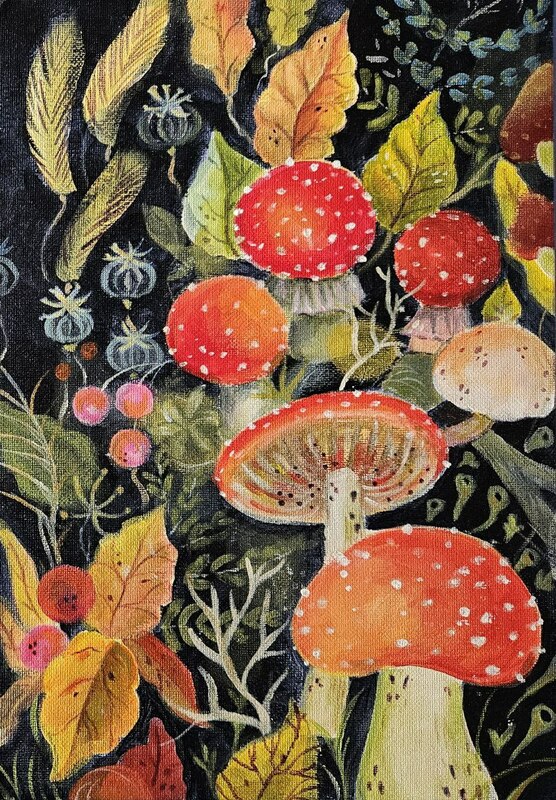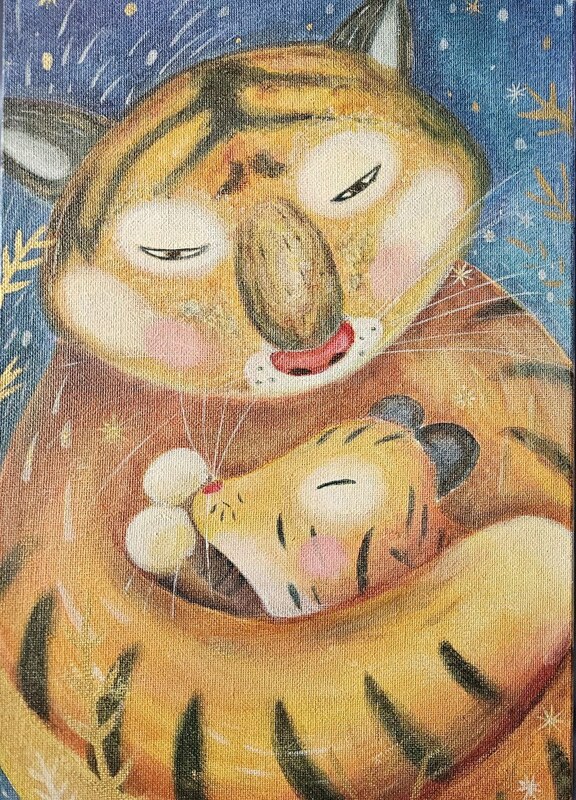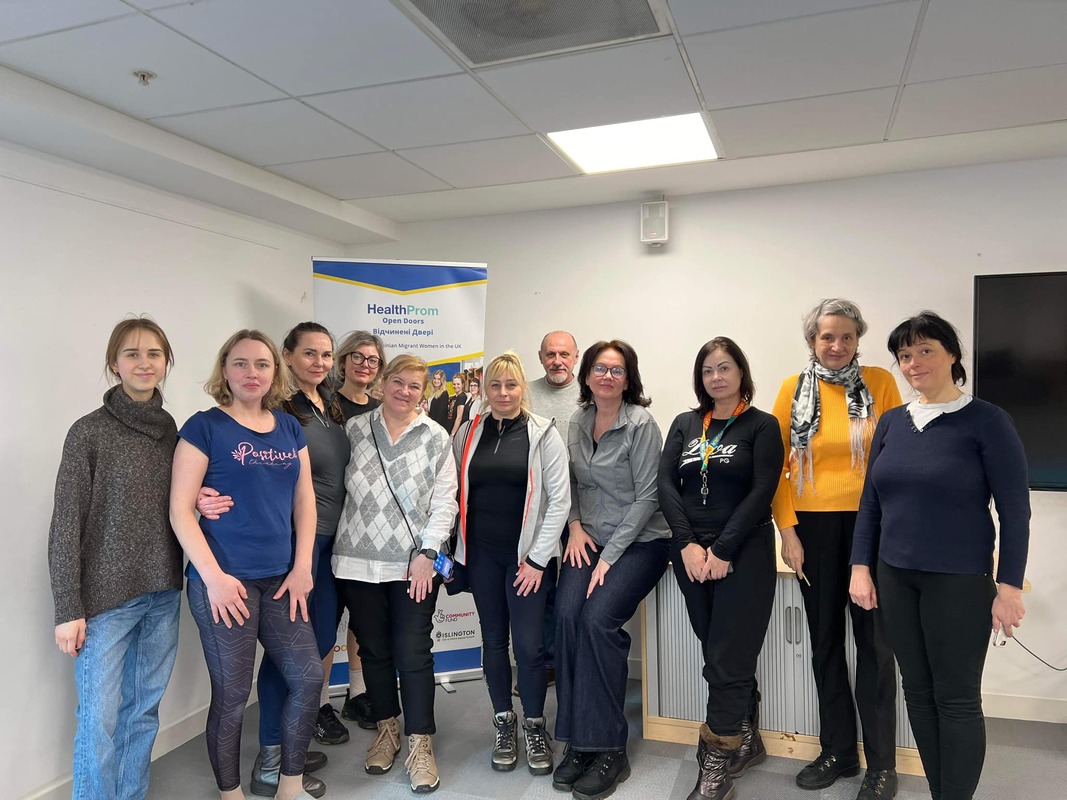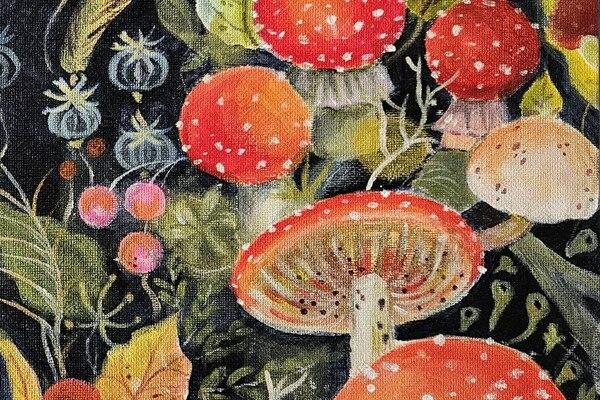Liza Chernobay joined HealthProm's weekly art therapy classes for Ukrainians in Islington as part of a research project. Read her reflections on the power of art to heal and bring people together.
Back in Spring, I started attending art therapy classes at Health Prom as part of my university research project. The aim of this research was to learn more about how displaced Ukrainians overcome the challenges of relocation to London, and the role of art therapy classes in that process. Despite my young age compared to most visitors at Health Prom, I always felt welcome and safe within this community, and I am grateful to all the conversations, insights and cups of tea which I enjoyed throughout my visits.

As I joined in the painting process, I quickly experienced the therapeutic effects of art-making myself, as I was able to relax and unwind from the worries and stresses of the busy London life and immerse myself into the world of colours, textures and tap into my imagination. Subconsciously, I was drawn to depicting natural scenes - peonies, forest mushrooms and animals - the themes which I’ve noticed were popular among the other members of the painting group. Nature evokes peace and relaxation, one woman shared with me; crucially, it is free from politics and drama which inhabits the world outside the art room. Within the art room, however, we can suspend time and escape reality, albeit temporarily, which to me is precisely the essence of art therapy.

I used to paint a lot as a child, however throughout my high school years I devoted less and less time to pursuing this hobby, until it disappeared from my routine completely. However, as I dipped my brush into the jammy puddles of acrylic paints once again, and layered colours onto my canvas until an image came to life, I started to re-discover the long-lost part of myself which I didn’t realise I missed so much. Thanks to these painting classes at Health Prom, I found my love for painting again; in fact, multiple Ukrainians who I’ve met at Health Prom agreed that after losing inspiration and motivation to ‘create’ in the war context, they were finally able to make art again in this safe, encouraging space.
Frankly, the biggest value of art therapy classes which stood out to me was not the therapeutic effect of art-making per se, but the access to a community of fellow Ukrainians they provide to the visitors. Choosing to attend an art group every week is an excellent opportunity to make friends in a foreign city, exchange advice and know-hows, complain, laugh, gossip and simply be together. From my conversations with the visitors, I gathered that such communities are crucial in overcoming the initial loneliness of relocation and are sources of emotional and practical support to the regular members. I was very touched by the warmth, kindness and friendliness of my interlocutors at Health Prom, and I am looking forward to returning once again to paint, chat and imagine a peaceful world together.
Liza Chernobay

Liza (left) with Ukrainians from art classes





